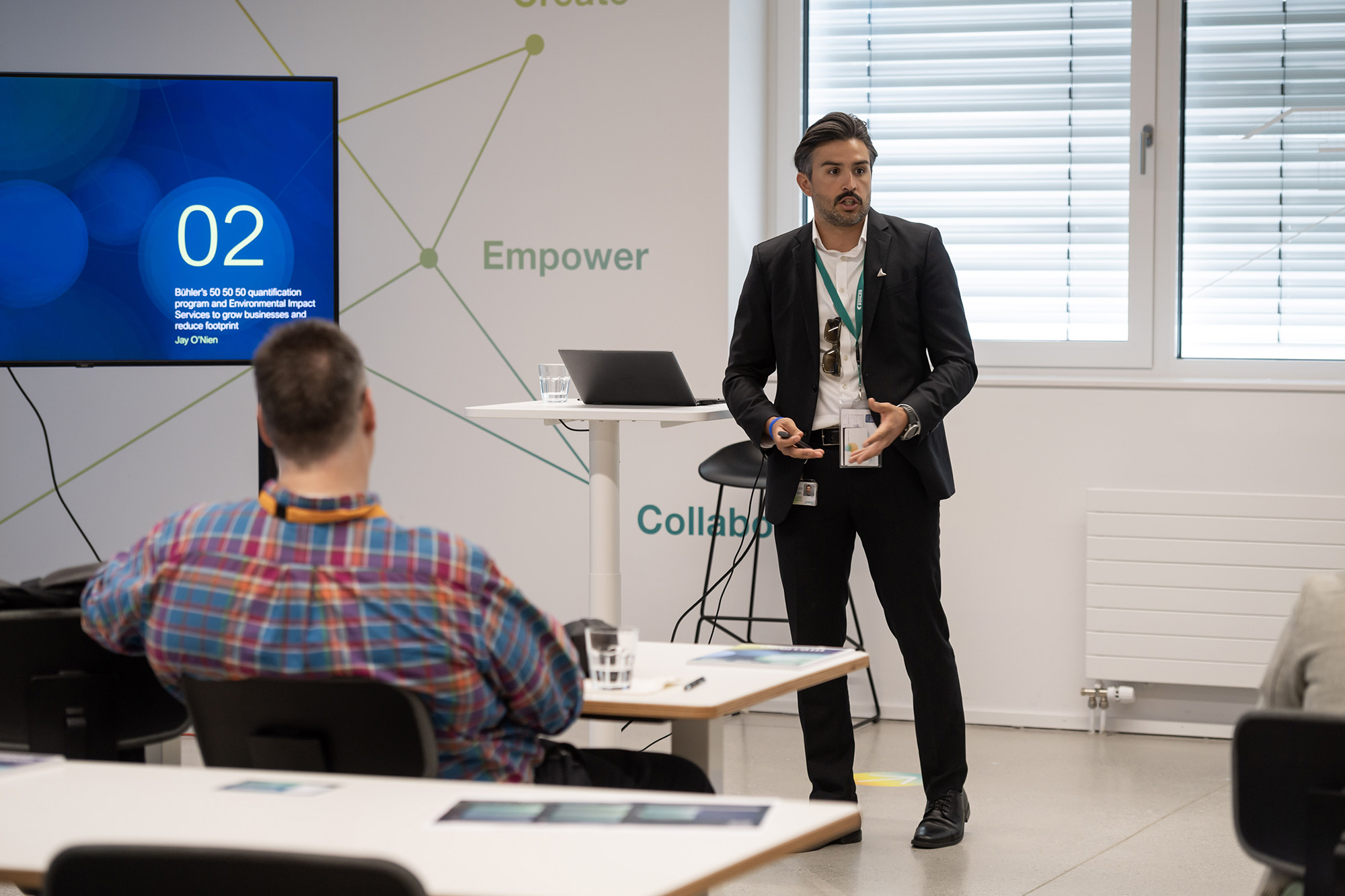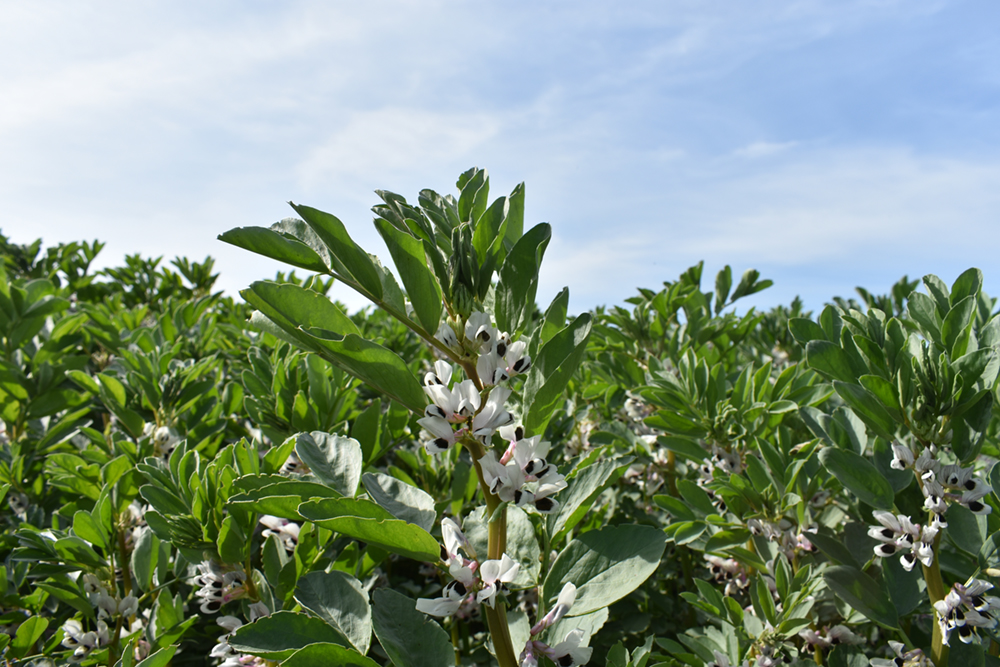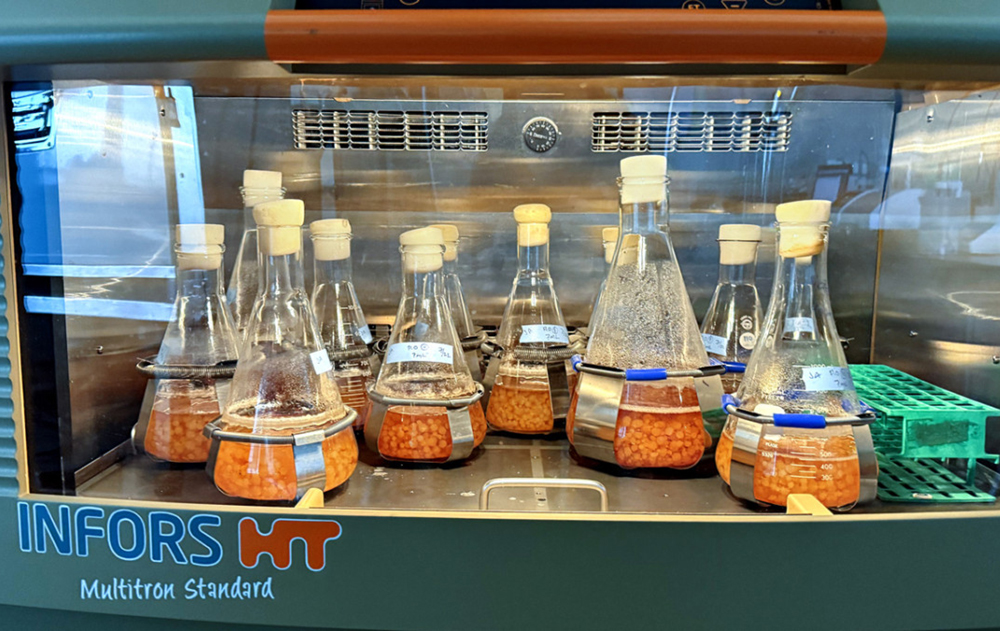

Bühler charts clear course linking profitability and sustainability
Bühler has presented detailed assessments of the environmental footprint of 15 value chains across the food, feed, and advanced materials sectors, alongside a new suite of Environmental Impact Services designed to help customers cut emissions, waste, water use, and land requirements while improving financial performance.
The results, unveiled at the company’s flagship Networking Days 2025 in Uzwil, Switzerland, quantify the most significant environmental hotspots from raw material sourcing to finished products. According to Samuel Schaer, Head of Services & Sales at Bühler, this approach reframes sustainability as a driver of competitiveness. “Sustainability is often perceived as a burden or cost factor,” he said. “With this assessment and our Environmental Impact Services, we can clearly demonstrate how business objectives and sustainability are closely interlinked – with sustainability serving as a driver of long-term business success.”
Since its launch in 2016, Networking Days has been held every three years to convene industry leaders, partners, and experts. At the 2022 event, Bühler pledged that by 2025 it would have scalable solutions capable of cutting energy, waste, and water use in customers’ value chains by 50%. Three years on, the company says those ambitions are being realized.
In its analysis, reductions of at least 50% in one or more environmental categories – energy, waste, water, CO₂-equivalent emissions, or land use – were found in 11 of the 15 value chains examined. Examples include the pea protein value chain, where energy use could be cut by 82%, water by 73%, and greenhouse gas emissions by 79%, and milk chocolate production, with potential for 77% lower CO₂e emissions, 37% less water use, and 32% less energy. In aluminum die casting, Bühler identified the possibility of cutting energy use by 28%, waste by 39%, water consumption by 83%, and CO₂e emissions by 71%.
Jay O’Nien, Group Sustainability Officer at Bühler, said the work goes beyond the company’s own technology portfolio. “Our methodology quantifies where change is achievable – even in areas beyond our traditional scope. This includes regenerative agriculture, biobased materials, and alternative energy sources. It is about understanding where the real levers for decarbonization and resource efficiency lie.”
Bühler’s Environmental Impact Services aim to guide customers through the process of identifying environmental hotspots and implementing targeted interventions. The approach integrates systems-level analysis with practical, tailored pathways for operational and financial improvement.
The company’s strategy for reducing environmental impacts rests on three pillars: replacing conventional products with new alternatives such as plant-based meat, adopting more efficient technologies and equipment such as induction ovens in place of gas ovens, and optimizing installed assets through services. “Services play a key role in simultaneously improving business performance and sustainability outcomes,” Schaer said.
Over the past several years, Bühler has invested more than CHF 500 million (US$562 million) in research and development to support these goals. This includes innovations in processing technologies such as continuous battery slurry mixing, megacasting, and low-emission roasting systems, as well as digital tools built on the Bühler Insights platform, which enables predictive maintenance and performance optimization. The investment also encompasses an expanded portfolio of customer services, from energy audits and equipment retrofits to long-term service agreements.
Bühler’s model has already been put into practice by several customers. In Italy, pasta maker Andriani has implemented a sustainability strategy in partnership with Bühler, recovering process water to cultivate spirulina, installing photovoltaic systems, and operating a biomass boiler fueled by milling by-products and local woodchips. These measures save up to 4,250 tons of CO₂e annually. The company is also developing a product footprint tracking system using Bühler’s Environmental Impact Services. Alongside these sustainability initiatives, Andriani has doubled revenue between 2018 and 2024, increased production from 22,000 to 39,000 tons, and achieved over 90% circularity in pet food production.
In Switzerland, food-tech company Planted uses Bühler’s process technologies and services to produce plant-based meats with up to 97% fewer CO₂e emissions than animal meat. Its modular manufacturing platform supports rapid adaptation to new products, enabling distribution to more than 10,000 retail outlets and 7,000 food service locations across Europe.
Speaking at Networking Days 2025, Professor Johan Rockström, Director of the Potsdam Institute for Climate Impact Research, warned that humanity is already exceeding six of nine planetary boundaries that define a safe operating space for life. Climate change, biodiversity loss, and disrupted biochemical flows are accelerating toward tipping points. The conclusion from scientists, he said, is clear: time is running out to bring industry and the economy back within planetary limits.
“We are beyond the stage of fine-tuning,” O’Nien said. “It is time to build business models that regenerate rather than deplete. We can no longer afford trade-offs between growth and sustainability.”
With its Environmental Impact Services, Bühler is aiming to provide precisely that kind of support – helping customers turn quantified environmental insights into operational efficiencies, competitive advantages, and measurable reductions in resource use.
(Main picture shows Jay O’Nien, Group Sustainability Officer at Bühler)
If you have any questions or would like to get in touch with us, please email info@futureofproteinproduction.com

.png)






